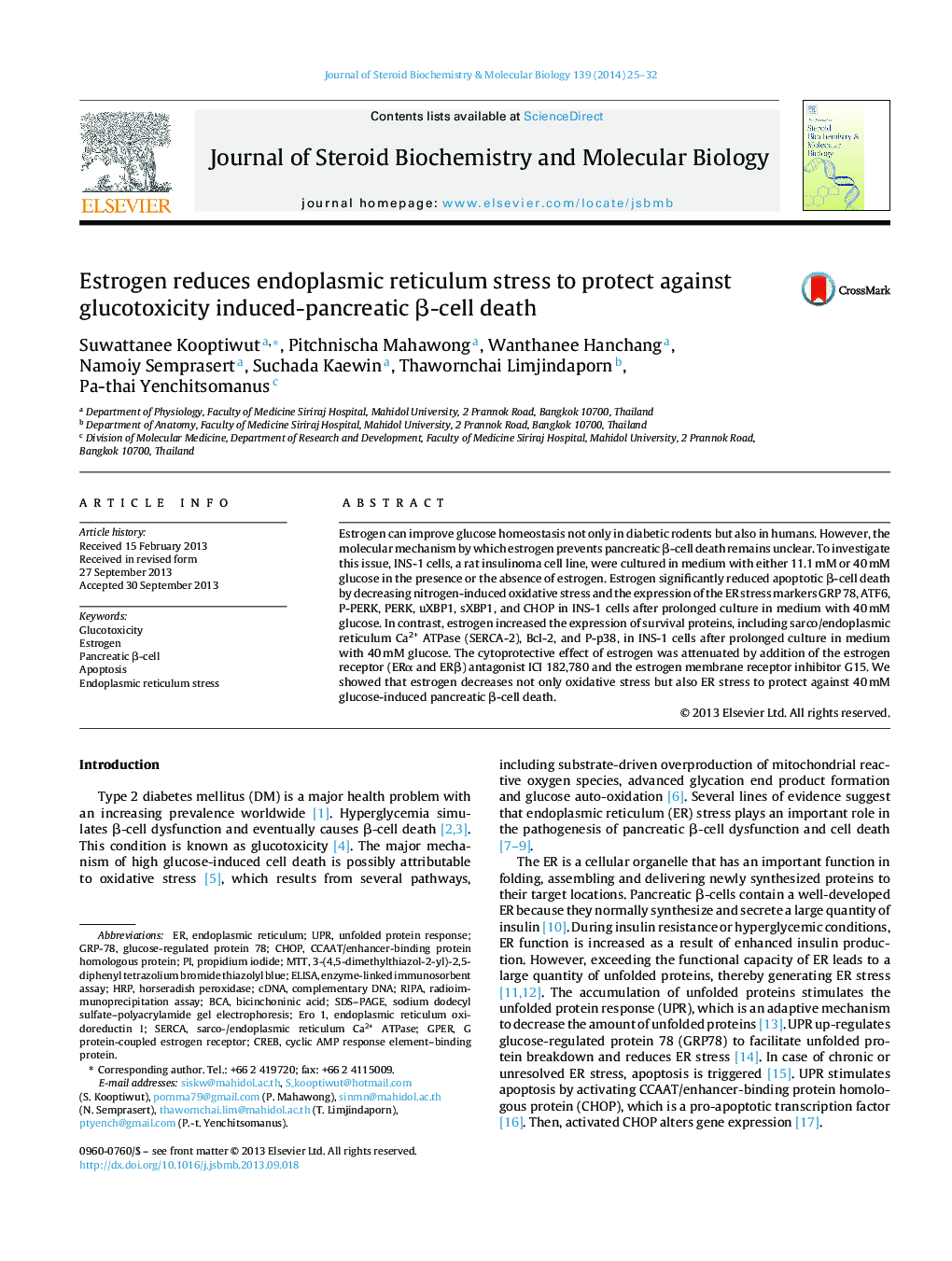| Article ID | Journal | Published Year | Pages | File Type |
|---|---|---|---|---|
| 1991537 | The Journal of Steroid Biochemistry and Molecular Biology | 2014 | 8 Pages |
Abstract
Estrogen can improve glucose homeostasis not only in diabetic rodents but also in humans. However, the molecular mechanism by which estrogen prevents pancreatic β-cell death remains unclear. To investigate this issue, INS-1 cells, a rat insulinoma cell line, were cultured in medium with either 11.1 mM or 40 mM glucose in the presence or the absence of estrogen. Estrogen significantly reduced apoptotic β-cell death by decreasing nitrogen-induced oxidative stress and the expression of the ER stress markers GRP 78, ATF6, P-PERK, PERK, uXBP1, sXBP1, and CHOP in INS-1 cells after prolonged culture in medium with 40 mM glucose. In contrast, estrogen increased the expression of survival proteins, including sarco/endoplasmic reticulum Ca2+ ATPase (SERCA-2), Bcl-2, and P-p38, in INS-1 cells after prolonged culture in medium with 40 mM glucose. The cytoprotective effect of estrogen was attenuated by addition of the estrogen receptor (ERα and ERβ) antagonist ICI 182,780 and the estrogen membrane receptor inhibitor G15. We showed that estrogen decreases not only oxidative stress but also ER stress to protect against 40 mM glucose-induced pancreatic β-cell death.
Keywords
GRP-78GPERUPRRIPAHRPBCACREBcDNAComplementary DNAG protein-coupled estrogen receptorMTTSDS–PAGEPancreatic β-cellEndoplasmic reticulum stressEstrogensodium dodecyl sulfate–polyacrylamide gel electrophoresisbicinchoninic acidEnzyme-linked immunosorbent assayELISACHOPApoptosisGlucotoxicityradioimmunoprecipitation assayendoplasmic reticulumSERCAUnfolded protein responseHorseradish peroxidaseglucose-regulated protein 78CCAAT/enhancer-binding protein homologous proteinPropidium iodide
Related Topics
Life Sciences
Biochemistry, Genetics and Molecular Biology
Biochemistry
Authors
Suwattanee Kooptiwut, Pitchnischa Mahawong, Wanthanee Hanchang, Namoiy Semprasert, Suchada Kaewin, Thawornchai Limjindaporn, Pa-thai Yenchitsomanus,
